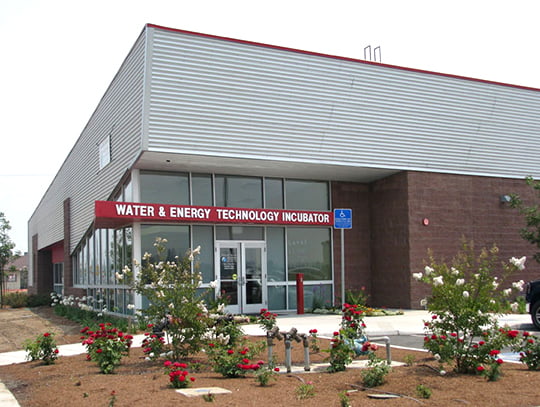Current Projects
No single discipline can understand today’s complex water issues that impact the economics, health, and culture of a region. For example, CWI research incorporates the interdisciplinary research team of its Faculty Fellows. We still support single researchers working on specific issues; however, the problem of managing a finite resource to meet multiple demands requires a more holistic approach.
San Joaquin Valley Water Collaborative Action Plan
Working with the Office of Community and Economic Development, CWI staff is helping coordinate and facilitate the San Joaquin Valley Partnership Water Work Group. In 2023, the work group is focused on developing an outreach plan and marketing materials to inform San Joaquin Valley growers about resources available to them to learn more about groundwater recharge benefits and how to get involved. A website is also being developed with resources available from city, county, state, and federal agencies. These resources will highlight groundwater recharge benefits, success stories, how to overcome limitations, and best management practices. Information on this effort will be shared on RechargeCA.org once completed.
California Partnership for the San Joaquin Valley – Water Work Group
Working with the Office of Community and Economic Development, CWI staff is helping coordinate and facilitate the San Joaquin Valley Partnership Water Work Group. In 2023, the work group is focused on developing an outreach plan and marketing materials to inform San Joaquin Valley growers about resources available to them to learn more about groundwater recharge benefits and how to get involved. A website is also being developed with resources available from city, county, state, and federal agencies. These resources will highlight groundwater recharge benefits, success stories, how to overcome limitations, and best management practices. Information on this effort will be shared on RechargeCA.org once completed.
AG – BOND – LESS LEAKY PATHWAYS
Ag – Building Opportunities through Networks of Discovery with a focus in Food, Agriculture, Natural Resources, and Human Sciences
The program is specifically designed to help you make the most out of your first year at Fresno State. This program will assist you in developing both critical thinking and applied skills that will give you a real-world experience for your future.
In addition, the program will:
– connect you to a range of student support services which will help you meet your goals, and
-provide you an opportunity to build lasting connections with your classmates and give you exciting ways and means to interact closely with faculty.
Students in the program will have the opportunity to engage in relevant project-based learning, research, and mentorship centered on authentic, locally relevant, and globally significant urban-agricultural-climate types of problems. This transformative educational experience will prepare students to serve and to lead in the San Joaquin Valley, California, and beyond
Climate-Smart Farmland Transition Study
The Public Policy Institute of California has partnered with CWI to assist with stakeholder outreach and engagement for this study. The study will include analysing the following gaps: (1) information on the benefits and costs of different land management options, (2) estimates of funding needs and potential funding sources for different types of beneficial land uses, and (3) an understanding of how institutions and policies can be structured to facilitate adoption of beneficial approaches. The success of a coordinated approach also hinges on collaboration of diverse stakeholders who may not normally work closely, such as growers, water managers, city and county land use planners, and soil and air quality experts. The objective of this project is to fill the knowledge gaps outlined here, and to bring together diverse stakeholders that are crucial to implementing elements of the approach. The goal of the research project is to advance cooperative strategies for managing the Valley’s formerly irrigated croplands for greatest benefit.
Unified San Joaquin Valley Water Plan
The California Water Institute Research and Education Division and the Water Blueprint for the San Joaquin Valley are working together to develop a unified water plan for the San Joaquin Valley. In consideration of the range of ongoing, at times disconnected, work to identify water management solutions for areas of the Valley, the Unified Water Plan Report (Report) will leverage available information and assets to describe an approach for the development of comprehensive regional solutions. The Report will not focus on reviewing or evaluating individual projects or efforts, but instead coordinate and integrate between San Joaquin Valley subregions in the development of a unified plan that enables and is consistent with local projects and efforts.
PPIC Crop Transitions
Conduct a two-year experiment on the Fresno State University Agricultural Lab (UAL) to determine the water needs of cover crops at different constraints.
Water Blueprint – Facilitation Support Services
For more information on past research projects, see our Publications page.
Our Partnerships
Collaborative partnerships with other Fresno State organizations help CWI strengthen projects, such as testing agricultural water products at the Center for Irrigation Technology (CIT) and Water, Energy, and Technology (WET) Center.

Center for Irrigation Technology (CIT)
Created in 1980, the Center for Irrigation Technology (CIT) is internationally recognized as an independent testing laboratory, applied research facility and educational resource. The Center for Irrigation Technology (CIT) supports developing and deploying technologies that will bring the world the most innovative products and resource management tools. CIT is built on a foundation of innovation and technology transfer focused on testing, applied research, education, and entrepreneurship. CIT staff works with the public and private sectors to advance irrigation, water, and energy technologies and management practices.

Water, Energy, Technology Center (WET Center)
The Water, Energy, and Technology (WET) Center helps ventures grow healthy businesses starting from innovative ideas to commercially-viable products and services. Since 2007, the WET Center has supported water, energy, and agricultural technology entrepreneurs through programs and services developed by their experienced team, with the assistance of a diverse network of industry and academic professionals. The multi-tenant facility is available to water, energy, and ag technology entrepreneurs from around the world. The WET staff is dedicated to supporting entrepreneurs and creating a rich culture of collaboration, community, and connections.
